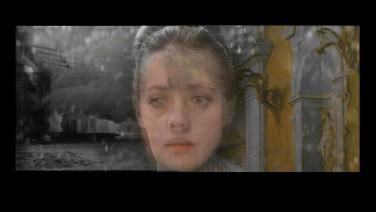
Eighth of twelve-part series that explores the changing production model by which the old tobacco factory became the current International Cultural Centre. Lurking two big questions: what do we need from the past when it comes to work? and how and from where one can speak of memory ?.
Tabakalera embodies these and many other issues, which has allocated a small space in the building, Storage, where the series is shown as a video installation, adding a chapter each mid-month, starting from the inauguration on September 11, until September 2016. The project by Cruza Marte, is accompanied by a public side events.
Chapter 8 (24'47'') - CULTURAL ACTIVITIES
I based the character of the theatre director on a real theatre director who I met by change in the early 1990s. I was working in the factory at that time. One Monday morning, accompanied by the manager and the Councillor for Culture, she came to where I was working. She was Polish. She spoke Spanish and a little Basque, which amazed me and made me feel, as was usual, very small by comparison. She had far away eyes. Mind you, she seemed intelligent and magnificent and when I say “magnificent”, you should take it to mean what really lies behind the splendid sound of the word: she happily moved through space as if the whole space would adjust and mould to her body. Nothing seemed to hinder, obstruct or obscure her. She was so convincing and natural as she wooed us with her words that an absorbed group of workers was swept along behind her. She invited us to take part in an artistic project. I didn’t sign up.
The company was behind the initiative and offered perks and facilities to those who attended the rehearsals, while I decided to spend my time calmly chain smoking away. A new department, known as “Cultural Activities”, had shortly before and deliberately emerged out of nowhere, yet the bigwig in charge claimed that it was one of the oldest in the company. “Pilar Primo de Rivera herself opened it in January 1943,” that real fool would boast, as it that meant anything. I later learnt that the order to incentivise the workers with cultural activities came from Madrid. In fact, it was not a one-off matter. At that time, Madrid was constantly providing a barrage of seemingly agreeable proposals. According to what was let slip, they was a clear call for change with respect to the thorny time of the Falangist triangles. The politicians (and not only those in Madrid) often spoke of "cultural restoration", of "cultural initiative", of "cultural project" among others, and with maybe an excess of euphoria and exaltation, even of "cultural democracy". The term “culture” was not an old shield but it had the virtue of seeming so. The golden value of culture. And the ensuing fever, as that servant proved to be a gold mine . During that decade, the watchword became more expeditious and was specialised. Exhausted, as usual, from work, but the novel aspect was then to pretend that at least you were happy to be tired, thanks to that wide range of cultural opportunities, some of which were so ridiculous that time was not needed to put them in their place, such as that ingenious idea to fill the work areas with photos of Mediterranean beaches. Discount vouchers were handed out for aerobic sessions – a concept that would be the foundations, after the Internet, for the second cultural revolution of the century that would begin years later -. And the odd artistic event was organised such as the one that the Polish theatre director held. The family of culture, all dressed up in their finest and with their hangers-on, gradually dragged in their wake and grabbed everything they came across, indifferently, like a vacuum cleaner, like the hems of bell-bottom trousers. Culture swallowed up everything, the home, work, city, our lives, our loves, our time, everything, with the true voracity of a financial regime, until it became an exemplary term for convenient restructurings, of which there were many at that time and those loaves and fishes would still continue to multiply. As Oskar Negt pointed out, culture became a magical practice, the philosopher’s stone of a specific turn-of-the-century alchemy. Everything it touched was changed into something of thunderous importance. “If, for example, you were talking about business culture, profit was no longer something petty and it would become the most important cultural phenomenon". The money laundering value of culture.
Those gentle cultural evenings, after a day’s work, had to provide us with the great and distinguished motivation that was deadened by the industrial production system, in other words, it was seen as an extraordinary addition that filled that gap that we dug ourselves and destroyed the gains that our work generated, that were stolen from us and which were ours by rights. In strictly corporal terms, the daily effective availability and disposal of our bodies on behalf of and for the economic satisfaction of others had to be changed in our favour, even if only symbolically. The fact had to be changed that during the working day our bodies did not belong to us, or only vaguely, according to the remote and specific expropriation of paid work. Paradoxically, when we were being encouraged to take part in the cultural incentive, in fact we were taking part in new expropriation procedures, so our bodies, yet again, would work for others and were handed over to others. If we donated our body to the factory in the morning, we donated them in the evening to a film, to a play, to a performance, or as was more frequently the case, to a shopping centre, to a gymnasium or a Pilates session.
Eighth episode of the twelve-part series that explores the changing production model by which the old tobacco factory became the current International Cultural Centre
